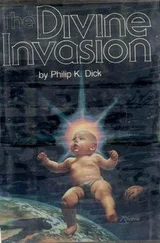He crossed to his desk and was about to summon Lal, his personal assistant — or facilitator, as he liked to call the young Indian — when he caught a flash of something out of the corner of his eye. He turned and stared through the floor-to-ceiling glass wall. Something coruscated a matter of metres above Morwell Tower, the country’s tallest building.
It looked, for all the world, like the inner curve of a dome seen from just beneath its apex. As if all New York had been placed under a mammoth bell-jar.
He noticed his softscreen flashing on his desk, and said, “Activate.”
Lal’s thin, keen face flashed onto the screen. “Sir, I think you should take a look through the window.”
“So I’m not hallucinating, Lal. What in God’s name is going on?”
“I… I don’t know, sir. It happened around thirty minutes ago. I tried to summon you.” Lal hesitated. “There have been other… ah, developments.”
“Go on.”
“I think it would be best if I were to show you, sir.”
Morwell was in a mood to humour his facilitator. “Very well, Lal. We have a little time before the think-tank cranks in to action.”
“I think they’ll have a lot to talk about,” Lal said cryptically. “I’m on my way.”
While Lal took the elevator up from the seventy-fifth floor, Morwell turned to the window and stared out. He could see, in the distance, the great convex arc of the bell-jar sweeping out over Long Island, and in the other direction over New Jersey… So what was it? Some vast and ingenious prank? A fabulous and daring work of improvisational art? Whatever it was, he reasoned, it was not real… in the sense that it not was a solid, physical thing, but more likely a projection of some kind.
“Sir.”
Lal crossed the penthouse office and stood before the desk, his carob-brown eyes ranging over its surface as if in search of something.
Lal was in his mid-twenties and a direct beneficiary of one of Morwell Enterprises’ humanitarian projects. Morwell funded schools and academies across the world, and from them drew the finest pupils to work in his many companies. Lal had been plucked from the slums of Calcutta at the age of fifteen, educated to a high standard and processed through the Morwell business empire. Five years ago James Morwell had installed Lal as a researcher in one of his newsfeed companies. In three years he’d worked himself up to become its editor, at which point Morwell swooped again and promoted Lal to the role of his PA.
Now Lal took up Morwell’s stiletto letter opener and slapped his palm with its blade.
Morwell gestured to the bell-jar. “Any ideas?”
“I have people working on it, sir. But one thing is for certain — it’s not an illusion, as I first thought. Reports are coming in from Long Island, sir. People are reporting that the dome is solid, a wall that has cut off the entire city of New York. But not only that, sir — the domes have covered all areas of population, no matter how large or small, starting in northern Canada and sweeping the globe. There are reports from every northern continent… every village, town and city is at present under a similar dome to this one. And as I speak, they are appearing over areas to the south of here.”
Morwell sat down in his swivel chair.
Not likely, then, to be a daring work of art…
“You said there have been other developments?”
“That is right, sir. Observe.” Lal placed his left hand flat on the table top and — before Morwell could stop him — raised the paper-knife and made to bring it down on his palm.
Morwell winced, then looked up and saw Lal’s oddly comic grimace of effort. The man was shaking.
“Lal? What the hell…?”
“I… am trying… sir… to stab… my… hand!”
“Have you taken leave of your senses? I don’t want blood all over my…”
Lal lowered the knife. “I cannot do it, sir. That is the thing. It is impossible. Reports from all across the northern hemisphere — acts of violence are no more. Boxing matches have ended in farce, with opponents unable to trade punches. Police report aborted bank raids and gunmen unable to pull the trigger…”
Morwell’s first impulse was to laugh and accuse Lal of playing a practical joke. He glanced at the calendar, but it was April the 30th, not the first.
He stood quickly, crossed the room to the gym and slipped inside. He snatched up the baseball bat, strode across to the rubber effigy of James Morwell Snr., and raised the bat.
He had no trouble at all in beating the figure to hell and back.
He returned to the office with the bat, and Lal was staring at the carpet and pretending he hadn’t witnessed his boss’s little weakness.
“Sir?
Morwell approached Lal. “If you’re pulling some kind of joke, Lal, you’re gonna be awful sore in the morning.”
Impulsively he raised the bat, meaning to swing it with reasonable force into the Indian’s midriff.
He stood with the bat in mid-air, and tried to swing…
He was frozen, as if the impulse to act had lodged somewhere between brain and arm.
He strained in an attempt to swing the bat, but the only result was that his arm began a palsied tremor.
Sweating, and not only with the effort of the abortive exertion, Morwell slumped into his swivel chair and told Lal to get the experts in here, on the double.
ANA DEVI SQUATTED on a girder beneath the footbridge at Howrah station and watched the Delhi Express slide alongside platform ten. She shared her perch with a grey-furred, red-bottomed monkey a couple of metres away, but that’s all she was sharing with the devil. She clutched a banana to her ragged t-shirt, and the monkey eyed the fruit with greedy, beady eyes.
“ Chalo! ” she yelled at the animal. It remained where it was, watching her impassively. It would be a mistake to start eating the banana now, even though she was hungry, because the monkey would be incensed by the aroma and try to snatch the fruit from her.
And every fool knew that the station monkeys were diseased, and that one scratch or bite could spell a lingering, painful death.
Down below the train halted and disgorged a thousand passengers. The crowd flowed along the platform towards the exit and the stairs to the other platforms, and seconds later Ana heard the thunder of footsteps just above her head.
The cacophony of the pedestrians succeeded in doing what she had failed to do: the monkey pulled back its lips to reveal a set of wicked, curved incisors, gave a howl, and bounded off along the girder-work of the bridge.
Ana laughed, peeled the banana and wolfed it down.
The footfalls above her head diminished, the train eased itself with a hiss from the platform, and comparative calm settled over Howrah station.
Ana missed her brother, Bilal.
Most of the time she was fine. She had friends among the kids who made Howrah station their home, a gang of boys and girls fiercely loyal to each other because they had no one else. It was the only family she had ever known, though she had a vague recollection of the aunt and uncle who had looked after her and her brother when their parents died in the cholera epidemic of 2014. Then Ana’s aunt had fled her uncle when Ana was six, and had been unable to fend for two hungry, growing children. Bilal, fifteen at the time, had taken Ana to Howrah station, where he had friends among the street kids who lived like monkeys in the rotting infrastructure of the old buildings. He’d lived with her there for a time, begging and stealing and making sure that she was provided for. Then, just as she was settling into life at the station, Bilal disappeared.
He’d gone to sleep with her one evening in the ancient goods truck they used as a bedroom, tucked up with her and a dozen other children like sardines in a can, and in the morning he was gone. There wasn’t even a gap where he had been, because the other kids had shuffled up to let another child lie down. He’d owned nothing other than a pair of shorts, a t-shirt, and an enamelled metal cup, white with a blue rim, and much chipped. After a day of searching the station and the streets around about, she’d given up in despair.
Читать дальше












